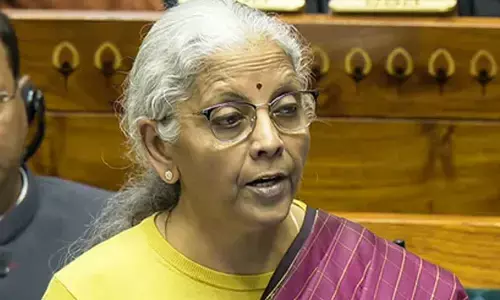Now invest in commodity derivatives via MFs

In the huff of the election results, a major announcement by Securities Exchange Board of India (SEBI) has not caught the attention it needed.
In the huff of the election results, a major announcement by Securities Exchange Board of India (SEBI) has not caught the attention it needed.
A historic step which could possibly deepen the commodity derivates segment (CDS) in India; Sebi has issued new norms for participation of mutual funds (MF) in commodity derivatives.
However, the regulator has restricted the MF to participate in sensitive commodities like agricultural products which are intervened, or price-regulated by government through the Essential Commodities Act.
The MFs could participate in Exchange Traded Commodity Derivatives (ETCD) in products like Gold, Silver, Crude, Copper, Mentha etc.
The MFs are nevertheless barred from taking physical delivery of any of these commodities they are allowed to trade.
Even if they have to take physical deliveries as part of the settlement, they will have to dispose the goods within 30 days and also appoint a custodian to handle those physical stocks.
Another major restriction the regulator has made is that the scheme investing in commodities shall not have Foreign Portfolio Investments (FPI) till such time as foreign investors have to operate through them.
Sebi has nonetheless allowed Category III Alternate Investment Fund (AIF), hedge funds and Eligible Foreign Entities (EFE) to have exposure to Indian commodity markets through commodity derivatives.
The circular also has allowed Gold ETFs to participate in Gold Deposit Schemes (GDS) and Gold Monetisation Scheme (GMS) where the latter is currently operational, but the former would be announced in future.
No MFs shall invest in physical goods except in Gold through Gold Exchange Traded Funds (ETF).
This exception is in place considering the 30-day window for settling the physical contracts in Gold.
MFs have been barred from becoming net sellers or holding net short positions in ETCDs at the scheme level and for this they have to take into account their positions in physical goods.
After the Forward Market Commission (FMC) merged in September 2015, Sebi has been regulating commodity markets and has been trying to increase the penetration and participants like FPIs, Insurance companies and MFs.
MF schemes can participate in the ETCDs as 'clients' and will be subject to all the rules and regulations; instructions, positions, limit norms, etc as may be applicable to clients issued by Sebi and exchanges from time to time. The position limits at MF level be as applicable to 'trading members.'
In terms of investment limits, Sebi rules state that MF schemes shall participate in ETCDs of a particular good (single) not exceeding 10 per cent of the Net Asset Value (NAV) of the scheme.
In case of Multi Asset Allocation schemes, the participation of ETCDs shall not be more than 30 per cent of the NAV of the scheme.
And in case of Gold ETFs, the cumulative exposure to gold related instruments i.e. GDS, GMS and ETCD with gold as the underlying asset shall not exceed 50 per cent of the NAV of the scheme.
However, within the 50 per cent limit, the investment limit of GDS and GMS as part of gold related instrument shall not exceed 20 per cent of NAV of the scheme.
Moreover, the unutilised portion of the limit of GDS of the banks and GMS can be consumed for ETCD having gold as underlying asset.
Of course, the cumulative gross exposure through equity, debt and derivative positions (including commodity derivatives) should not exceed 100 per cent of NAV of the scheme.
MFs could use the ETCDs to hedge against the volatility in metals, oil and gas and other commodities or/and commoditised equities.
ETCDs could be used as a hedge against oil price shocks and indirectly to hedge currency fluctuations.
The news was received with mixed opinion as most of the players are awaiting further clarity.
Another critical factor is the establishment of infrastructure like the expert fund manager (stipulated by the regulator) and custodians in case of requiring holding of the physical goods.
And a commodity specific fund is not an ideal investment option for retail investors and it should be part of the portfolio and in-line with their risk appetite though for the higher net-worth individuals with an existing portfolio adds flavour.
This would complement an existing portfolio to the asset management companies with an additional fund category offering more choice to the investors.
(The author is co-founder of "Wealocity", a wealth management firm and could be reached at [email protected])














